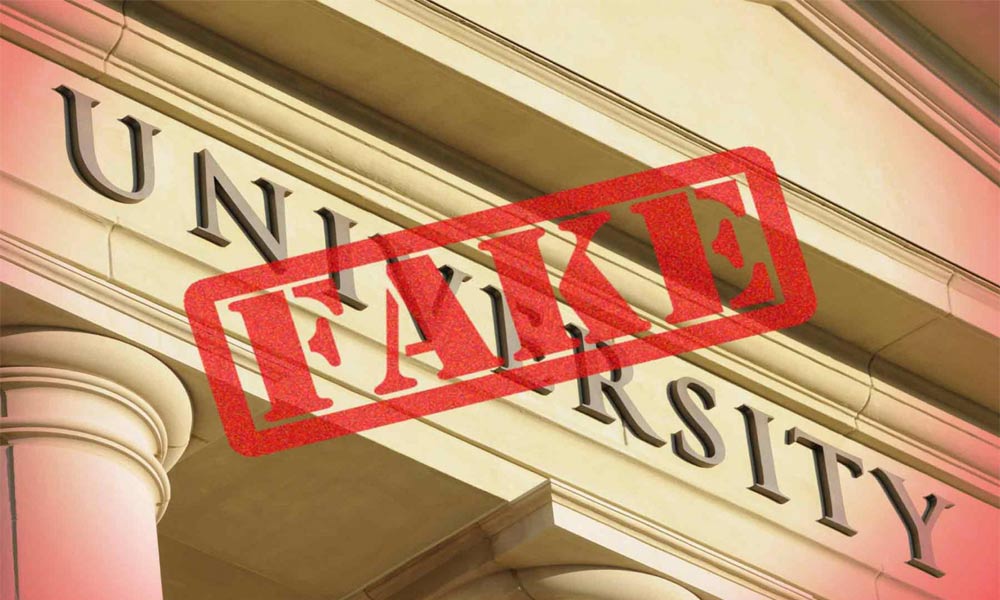Edition: September 22nd, 2021
Curated by the Knowledge Team of ICS Career GPS

- Excerpts from article published on studyinternational.com
As the number of online higher learning institutions grow, so does the number of virtual scam universities. A diploma mill, or degree mill, is a fake company that provides fraudulent college and university certificates and transcripts to people for a fee. Some masquerade as real higher education institutions that award degrees to students, while others merely sell degrees for cash.
The former can be more worrying, as many unsuspecting students may purchase an online degree programme and end up blowing precious money for a worthless degree.
The problem is rampant, with numerous reports showing that many students have fallen prey to these schemes across many countries.
There are many implications of getting a fake degree, regardless of whether you’re aware of your ‘qualification’ being fake or not. Some of these are:
- Graduates of scam universities will find it hard to get a job
- If you’re already employed but hold a fake degree, it can negatively impact your career
- It can negatively impact your personal and professional reputation
- Legal action can be taken against you
While authorities are clamping down on bogus universities, students need to be vigilant to avoid falling prey to these scams.
International students looking for an online qualification are prime targets of these dodgy organisations.
You can take help from professional career counsellors to stay safe. Apart from that, you can also spot scam universities on your own.
Here are some tips to identify fake institutions and steer clear of them:
1. Scam universities lack recognised accreditation
- Accreditation can be a sticky subject – depending on the country of your institution, the accrediting agency will vary.
- Hence, when it comes to online degrees, you’ll need to do some digging to find out which relevant bodies institutions must refer to.
- You should also check the accreditor to be super safe.
- All of these take time but will be worth every minute to peace of mind that your degree is real.
2. They promise a degree within a short period
- Degrees typically take three to four years to complete.
- If an institution is promising you a degree within several months without much academic effort on your part, it’s likely that your institution is fake.
- Typically, you’ll need to complete 120 credit hours for a degree – an impossible feat to achieve within a few months.
- There are also exams, assignments and assessments to complete, tying many students to their books.
- Remember that if something feels too good to be true, it probably is.
3. They ask you to pay a lump sum upfront
- Traditionally, institutions don’t require full, upfront payment for their programmes.
- Instead, students are charged per credit hour, by class or semester.
- If you are required to make full payment before starting your degree, heed with caution.
4. They provide insufficient contact details
- A lack of basic contact information on an institution’s website, such as a phone number or legitimate address, is undoubtedly a warning sign of a diploma mill.
- Universities / colleges typically make such information readily available to enable prospective students to contact them for enquiries.
5. Their admissions criteria appears dodgy
- If an institution claims that anyone, regardless of their educational background, can obtain a degree, be careful.
- There are institutions that allow working individuals to use their work experience as credit for their degrees, enabling them to graduate faster and at a cheaper price.
- But an overemphasis on real-life experiences without having to prove your mastery in these areas for your degree is a valid cause for concern.
- If in doubt, contact the institution for more information and do not commit to anything until they show proof of legitimacy.
…
(Disclaimer: The opinions expressed in the article mentioned above are those of the author(s). They do not purport to reflect the opinions or views of ICS Career GPS or its staff.)
Like this post? For more such helpful articles, click on the button below and subscribe FREE to our blog.




